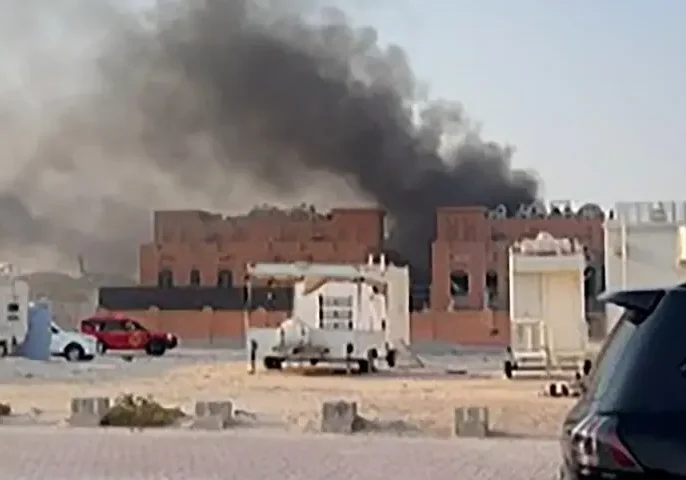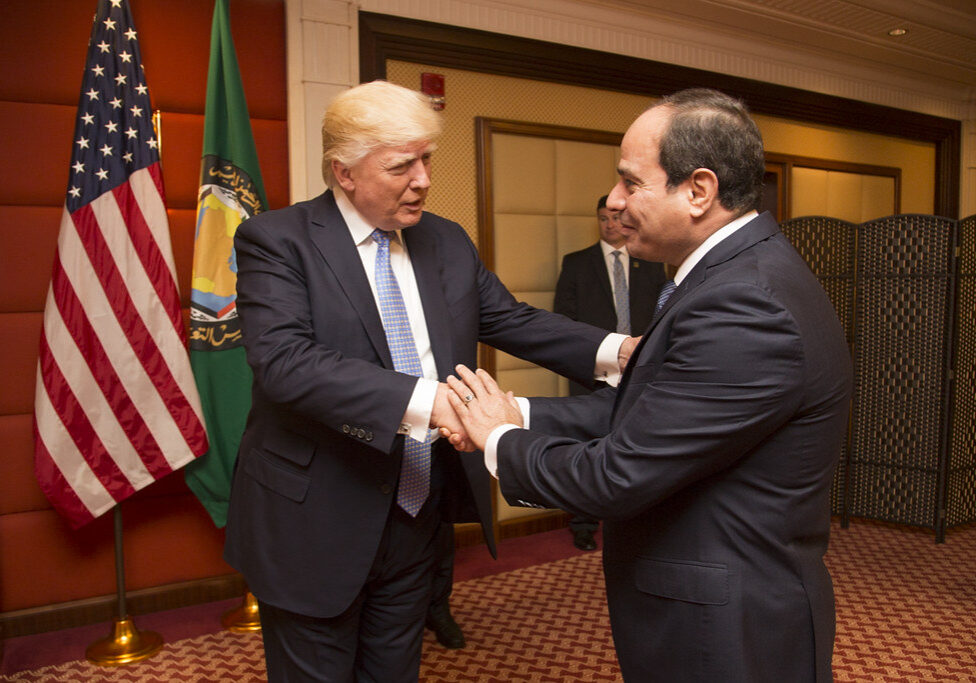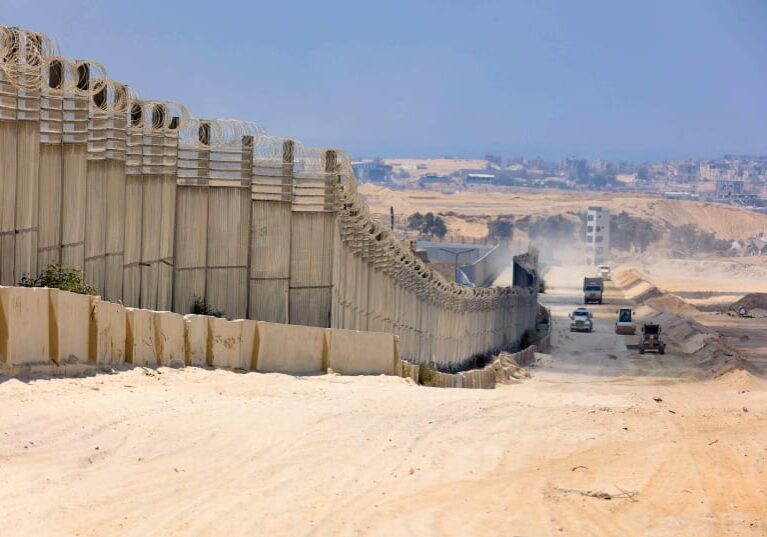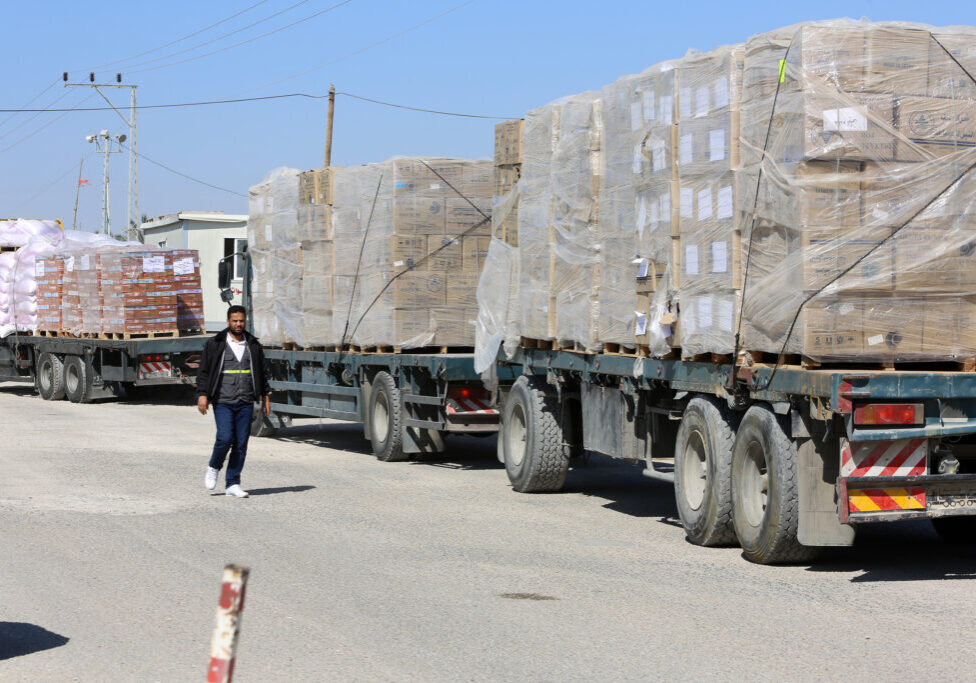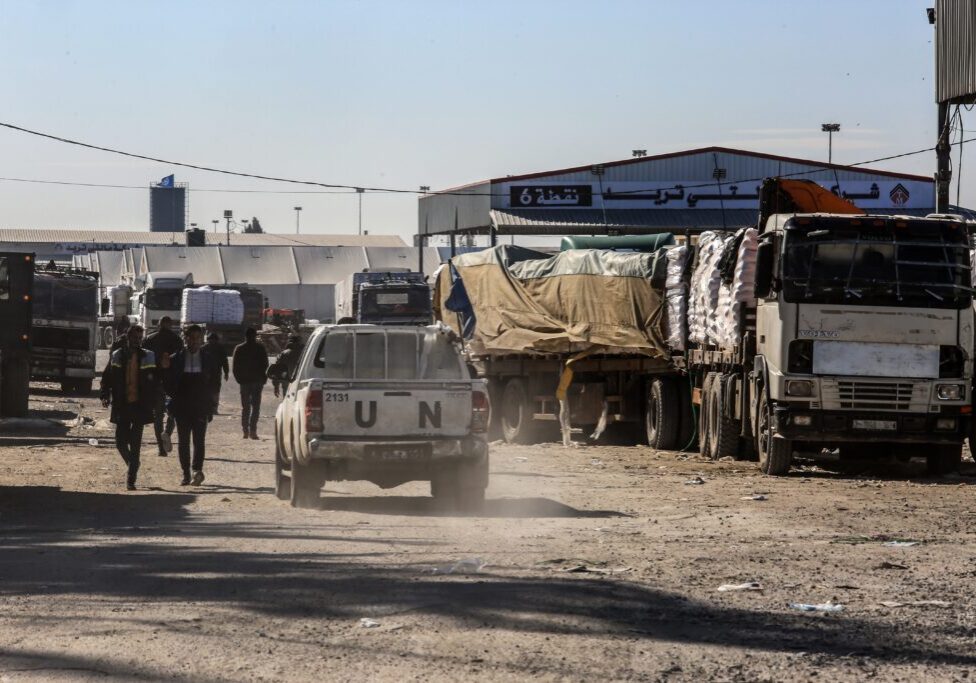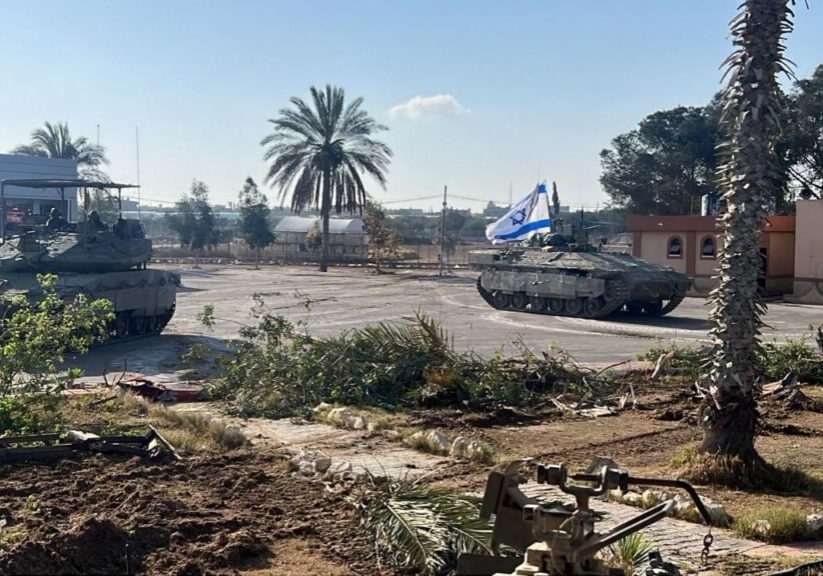Australia/Israel Review
How Gaza Changes the Mideast Game
Nov 28, 2012 | Lee Smith
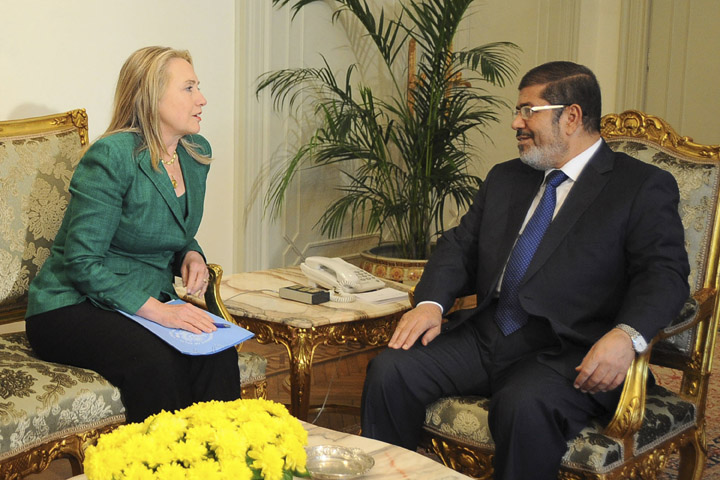
Lee Smith
In mid-November, Israel embarked on “Operation Pillar of Defence”, the second time it’s gone to war against Hamas in the past four years. The proximate cause of this campaign, according to Israeli Defence Minister Ehud Barak, was “the incessant rounds of artillery rockets and mortars into the heart of our southern communities.” But that rationale was surely coupled with a build-up in Hamas’ weapons arsenal – including the Iranian-made Fajr-5 missile, capable of striking Tel Aviv, and Kornet anti-tank missiles, one of which was fired on an IDF jeep and injured four soldiers on Nov. 10.
But as with all conflicts in the Middle East, this confrontation is not limited to the two actors currently exchanging fire. It will shape the strategic position of a host of regional and international actors, most dramatically Egypt, the United States, and Iran. Secretary of State Hillary Clinton’s arrival in the region on Nov. 20 for talks in Jerusalem, Ramallah and Cairo precipitated a ceasefire announcement.
Now the question is whether the Secretary of State will be able to take Israel’s winning military campaign and turn it into a diplomatic triumph for Washington and Jerusalem at the expense of Hamas and Iran. Successful negotiations would convince a reluctant Egyptian President Mohamed Morsi that his long-term interests are best served by staying close to the United States rather than Hamas. Perhaps no one is watching Clinton and the course of the Israeli campaign more closely than those in Teheran. With rumours of bilateral talks with Washington over their nuclear arms program, the Iranians want to see how the Americans deal with their Israeli ally and negotiate under pressure.
No matter what happens, though, Operation Pillar of Defence has rearranged the Middle East game board. Here’s how it looks right now – and how the dynamics might look in the coming months as Iran continues to march toward nuclear weapons.
Israel
If deterrence seems like a short-term fix to those in search of a permanent solution to the Palestinian-Israeli conflict, the reality is that most of Israel’s wars, like most conflicts in the Middle East, are duct-tape wars: There are few permanent solutions in the region, merely readjustments to the status quo. That may prove dissatisfying to some, but it’s far preferable to the 900 rockets and mortars that Hamas had rained down on Israelis over the past year.
Israel has already accomplished two of its main goals: killing several of Hamas’ top military officials, and degrading the Islamic Resistance’s arsenal of long-range missiles, including the Fajr-5. Prime Minister Binyamin Netanyahu’s Government has no interest in occupying Gaza or uprooting Hamas. Some Israeli officials fear that with Hamas gone, the even more extreme Salafist movement would come to rule Gaza. What Jerusalem wants is to prevent Hamas from renewing hostilities anytime soon, and the IDF looks like it may well have accomplished that without sending in the 30,000 troops it once had poised on the Gaza border. Israel’s primary goal was to achieve the same quiet on its southern border that it has enjoyed on its northern frontier since the 2006 war with Hezbollah.
One of the most noteworthy aspects of the current campaign is the relative lack of international criticism of Netanyahu, a world leader unloved by his peers. Given that Israel is typically the target of international opprobrium, the silence is hard to explain.
Some are speculating that Netanyahu may have paved the way for Pillar of Defence, beginning last month when a factory in Khartoum was bombed. Israel was widely credited for bombing the site, which was said to serve as an Iranian weapons depot, though Jerusalem has avoided comment. Some experts have argued that Pillar of Defence might best be seen as the second stage of a two-part operation against Hamas that began in the Sudanese capital. Perhaps Netanyahu took the evidence gathered in Khartoum to European leaders and the Obama Administration to make sure that no one was going to be surprised by this current operation in Gaza – and so they understood that the larger target was Iran.
Hamas
It’s not clear why Hamas chose to escalate at present. Perhaps there are intra-Palestinian issues that forced its hand, like Mahmoud Abbas’ upcoming trip to the UN General Assembly later this month when he intends to once again push for recognition of Palestinian statehood; Hamas may have simply wanted to remind Abbas (and others) that it is they who truly represent the Palestinians since they fight and die for the cause. There are also regional factors. The Iranians may have sought to change the conversation from their nuclear weapons program by having Hamas wage war against Israel. Finally, there are ideological reasons: An anti-Zionist resistance movement has to fight Israel.
Whatever the cause, the result seems clear: In stepping up its attacks against Israel, Palestine’s Islamic Resistance Movement overreached badly. Clinton and other players must avoid the temptation to give Hamas a fig leaf, like completely lifting the six-year-long blockade of Gaza, which would allow them to portray this confrontation as a win. That’s not just for the sake of US and Israeli prestige, but also to show Hamas that it must pay a price for putting Egyptian President Mohamed Morsi in a compromising situation.
After honour, what Hamas wants most right now is money. The Emir of Qatar pledged US$400 million for construction projects in Gaza last month, but this will do little to turn around an economy that is effectively shut off from the rest of the world. Though often blamed for Gaza’s crippled economy, the Israeli blockade is only one side of the problem. The other is that the Egyptian army has started to close down the smuggling tunnels to the Sinai that serve as a major source of income for Gazan entrepreneurs.
Paradoxically, the army under Morsi’s Muslim Brotherhood government has been more active in closing down tunnels than Hosni Mubarak’s military ever was. After a jihadist group in the Sinai killed 16 Egyptian border guards in August, the army realised that with the flow of materials going back and forth between Sinai and Gaza Egyptian national security was at stake – and so were their lives. When the army moved to close tunnels, they inadvertently sent the Gazan economy into a tailspin. The current exchange with Israel might be considered in part as a sort of fundraising drive: The longer Hamas can drag the conflict out, the better chance they have at eliciting donations from Gulf patrons.
Still, money won’t solve the organisation’s structural problems. Ever since the uprising against Bashar al-Assad started, Hamas, whose political bureau was based in Damascus until last year, has been in trouble. They couldn’t very well side with a regime killing their Sunni brothers, but to go against Damascus meant alienating Iran, which supplies the group with the weapons it needs to wage resistance against Israel. That left Cairo as a possible patron. To be sure, an Egypt led by the Brotherhood is a more natural fit for Hamas than the foundering Alawite regime in Syria. But Egypt has its own interests, like staying out of a war with Israel, at least for the present, and not being publicly embarrassed when it doesn’t enter a war it can’t afford. Trying to ride Cairo for political clout while at the same time depending on Teheran for weapons was bound to get Hamas in a jam.
Egypt
It’s hard not to feel some sympathy for Egyptian President Mohamed Morsi. The Muslim Brotherhood and Hamas are blood relatives, sharing ideology and the larger strategic goal of destroying Israel. To lend real clout to Hamas, Morsi’s big move would be to threaten to trash the peace treaty with Israel. But he can’t play that card since 1) Egypt sorely needs financial support from the United States and Europe; and 2) the Egyptian army would likely move against him if he jeopardised the supply of American arms and cash flow that it lives on.
Morsi’s domestic rivals to the right, the Salafists, would have enjoyed seeing him twisting in the wind, not able to make war or broker peace.
And so Morsi’s prestige was on the line, even if he has been somewhat insulated by news of a domestic tragedy in which 49 Egyptian schoolchildren were hit by an oncoming train. If the Gaza war had gone on too long, giving Egyptians time to turn their attention away from this horrific story, he would have had large parts of the population questioning whether he, like his predecessor, should be regarded as simply an “American and Israeli stooge”.
The Brotherhood is likely incensed that Hamas put them in this position, subject to ridicule and criticism from regional rivals. On Nov. 19, Hezbollah leader Hassan Nasrallah described Egypt much the way he did when Mubarak was in charge. “What is asked from the Arab countries is to help and arm Gaza, rather than working as mediators between the [Palestinians] and the Israeli enemy,” said Hezbollah’s Secretary-General.
As many Egyptian journalists have remarked, the reality is that Morsi’s key interests are virtually identical to Mubarak’s – among others, maintaining stability in the Sinai, observing the peace treaty, and keeping Gaza quiet. Unlike Mubarak, the Brotherhood was elected, in no small part because of its historical reputation for repudiating the West. Morsi’s weakness hurts the Brotherhood not only with its Salafist rivals, but also in the larger regional competition with Iran for the hearts and minds of the umma (the community of the Muslim faithful).
United States
Clinton’s visit to the region reminded all the regional players why the United States is, at least in the Middle East, the indispensable nation.
So far, the Obama Administration has been very generous in its support of Israel, and it likely earned Netanyahu some goodwill that he embarked on his campaign after the president was re-elected. But warm feelings can evaporate very quickly, as we saw during the 2006 Israel-Hezbollah war when Condoleezza Rice won control of the Bush Administration’s foreign policy. Rice wasn’t entirely wrong to be angry with the Olmert Government, which proved incapable of meeting its stated war aims, like disarming Hezbollah and freeing the IDF soldiers that the Lebanese outfit had taken hostage.
In contrast, Netanyahu’s handling of this conflict has been the model of competence – at least so far – and may allow Clinton to build on the groundwork laid in the 1973 Arab-Israeli war. It was then-Secretary of State Henry Kissinger’s massive air lifts to Israel that proved to the Arabs they were incapable of driving the Jews into the sea, and that they had to come through Washington to deal with the Israelis. What the United States wants in exchange from the Arabs has changed over the years, and right now what Washington needs most in the eastern Mediterranean is a stable Egypt, meaning a compliant Morsi who understands the region is safer when it is he, and not Israel, who keeps Hamas in line. With some luck and some skill, Clinton may have left the region with just that, which would be a big win for the administration and US policy in general.
Iran
It is important to see this entire campaign in its second dimension – that is, in terms of how it reflects and illuminates the Iran issue. The Iranians are watching carefully, noting Israel’s ability to target Iranian missiles and Hamas militants who trained in Iran. Iron Dome’s 90 percent success rate in destroying short-range missiles destined for populated or security-sensitive areas will surely affect how the Iranians plan to react in the event of an Israeli or American attack on Iranian nuclear facilities. If Iron Dome limits both Hamas and Hezbollah in their future missile campaigns against Israel, then Iran will have to spend other, likely costlier, resources to target Israelis.
But perhaps most important, the Iranians are watching to see if there are any signs of daylight between the United States and Israel. With all the talk of the administration offering a grand bargain to the Iranians, the question that the regime most wants answered is whether or not Obama will restrain the Israelis. To date, Washington and Jerusalem’s coordination has painted a picture that is likely to keep Teheran guessing. The message from Operation Pillar of Defence is that the Israelis may well act on their own – and have the support of the United States, which does the diplomatic and political mop-up after the damage is done. That’s the kind of strong message that might even convince the Iranians, fearful of America’s effective ally, to enter direct talks with the Administration.
Lee Smith is a senior editor at the Weekly Standard, a fellow at the Foundation for Defence of Democracies, and the author of The Strong Horse: Power, Politics, and the Clash of Arab Civilisations. This article is reprinted from Tablet Magazine, at tabletmag.com, the online magazine of Jewish news, ideas, and culture. © Tablet magazine, reprinted by permission, all rights reserved.
Tags: Egypt

